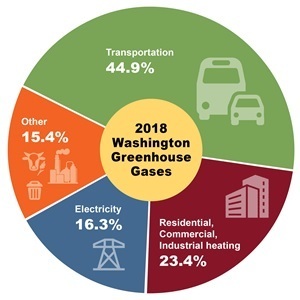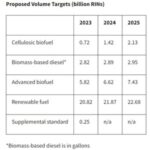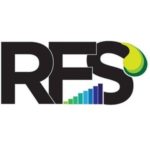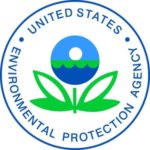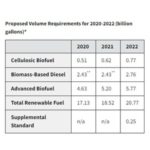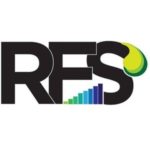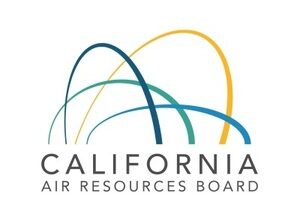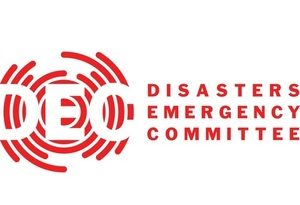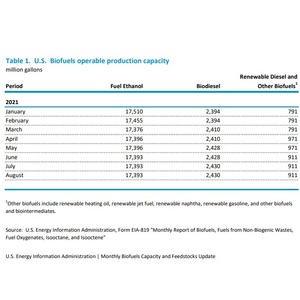Biofuel groups comment on Washington’s proposed CFS rule
Energy Disrupter
ADVERTISEMENT
A public comment period on Washington’s proposed Clean Fuel Standard closed Aug. 31. The program aims to incentivize fuel suppliers to reduce the carbon intensity of transportation fuels by 20 percent by 2038.
Washington Gov. Ray Inslee signed a bill establishing the CFS in May 2021. The law directs the Washington Department of Ecology to issue rules and start the program by Jan. 1, 2023. The agency on July 18 published a proposed rule to implement the CFS. A public comment period on the proposed rule was open through Aug. 31.
The CFS offers fuel suppliers multiple options to comply with the program’s required greenhouse gas (GHG) reduction requirements, including improving the efficiency of their fuel production processes, producing and/or blending low-carbon fuels into the fuel they sell, or by purchasing credits generated by low-carbon fuel producers and from supporting programs to increase zero-emissions vehicles and infrastructure in the state.
The CFS includes several provisions designed to expand the supply of clean fuels produced within the state, including a required 15 percent net increase in liquid biofuel production in the state. The program also requires the completion of permitting approval for a new or expanded biofuel production facility with at least 60 million gallons of annual capacity before reducing carbon intensities beyond 10 percent.
A variety of biofuel producers and trade groups submitted comments on the proposed rule, including Growth Energy, the Coalition for Renewable Natural Gas, the Renewable Fuels Association, Neste, Poet, the Biotechnology Innovation Organization and Clean Fuels Alliance America.
Growth Energy is calling on the Washington Department of Ecology to consider the vital role of biofuels in reducing GHG emissions. The group is also urging the department to correct the GREET model to accurately reflect updated science on land use, credit farmers for field-based farm practices, and include credit generation from carbon capture. “We continue to urge the Department to further develop clear policies that recognize the realities of today’s fuel market and examine how homegrown biofuels can immediately contribute to achieving GHG reductions,” wrote Chris Bliley, senior vice president of regulatory affairs at Growth Energy. “In fact, a recent study from Air Improvement Resources found that if Washington converted completely to E15, it could reduce GHG emissions by 334,000 tons per year – the equivalent of taking 73,000 cars off the road annually.”
The RNG Coalition outlined several changes to the proposed that would better incentivize the use of renewable natural gas (RNG). While the current draft rule limits the use of the flexible RNG guarantee of origin accounting to only cases where the end use of RNG is a natural gas vehicle or as a feedstock for hydrogen production, the RNG Coalition is urging the department to allow RNG use in all applications that lower the carbon intensity of transportation fuels. The group offers several examples, including the use of RNG as feedstock for sustainable aviation fuel (SAF) and as a fuel to decarbonize electricity production.
The RFA is calling on the department to ensure the land use change (LUC) values used in modeling conform to updated analytical and empirical data. “The Argonne GREET model is the basis for the life cycle analysis in the CFP, so it is consistent to use Argonne GREET for land use change values as well,” the RFA wrote. “Argonne updates its model regularly (typically on an annual basis) to incorporate the best science on all variables. Additionally, in the interest of technology neutrality and with the rapid increase in battery-electric vehicles, the land use impacts of mineral extraction for battery production should also be evaluated, along with the land use implications of expanded wind and solar electricity generation.”
In its comments, Neste encourages the department to maintain a technology-neutral policy and science-based approach when setting carbon intensity (CI) standards. “This will instill in Washington consumers the confidence that available fuels have accurate CI values, and that the all advanced renewable fuels are made available faster and at the lowest cost possible,” the company wrote. Neste also expressed concern that the proposal delays implementation of the original Tier 2 pathway applications until July 1, 2025. Tier 2 fuels include sustainable aviation fuel (SAF). “Neste requests that Ecology consider establishing adequate fees payable by industry stakeholders to cover expenses associated with Ecology’s pathway review services and allow sales of all available low carbon fuels in Washington at the onset of the CFP program on January 1, 2023,” the company wrote in its comments. “The federal government’s Grand Challenge to produce 3 billion gallons of SAF by 2030 would be imperiled by state programs postponing introduction of drop-in fuels that can achieve immediate GHG emissions reductions in the hard to decarbonize aviation sector. As the U.S. center for aviation innovation and manufacturing, Washington should be leading in the decarbonization of commercial aviation by making all SAF available for the aviation industry starting on January 1, 2023.”
Poet is encouraging the department to address several issues it has identified in the proposed rule, including the adoption of an indirect land use change value for corn ethanol that accurately reflects the latest scientific research, accurately accounting for low-carbon process energy and practices, expanding methane avoidance credits to methane sources beyond swine and manure, and awarding CI reduction credit to carbon dioxide captured and utilized in commercial applications that result in a net reduction in GHG emissions. “At the very minimum, it should ensure that Tier 2 pathways are more than a dead letter and serve as a viable pathway for recognition of innovative, GHG reducing production methods,” Poet wrote.
BIO is urging the DOE to use updated science related to indirect land use changes for corn, canola, soy and other plant-based biofuels. The group is also calling on the department to involve corn, canola, timber and sugar beet producers in the development of the CFP to help ensure that the program considers agricultural carbon reduction practices, such as no-till, in the calculating of the respective CI scores.
Clean Fuels is recommending the department add language to the proposed rule that clarifies that a certified Tier 2 pathway for an existing facility should be grandfathered in before 2025 if that facility undergoes an expansion. The group is also encouraging the department to avoid charging fees to credit generators under the CFS. “The Washington CFS will be the only carbon market charging a fee for participation , which could create a competitive imbalance. Even the modest fees to producers of renewable fuels (covering 20-30 percent of the program cost) could stifle the program’s success,” Clean Fuels wrote. “Smaller producers might avoid Washington’s program due to the fee, opting instead to sell fuel in British Columbia, California, and Oregon markets, which would have lower costs and potentially higher value credits.”
Additional information, including full copies of the submitted public comments, is available on the Washington Department of Ecology website.

